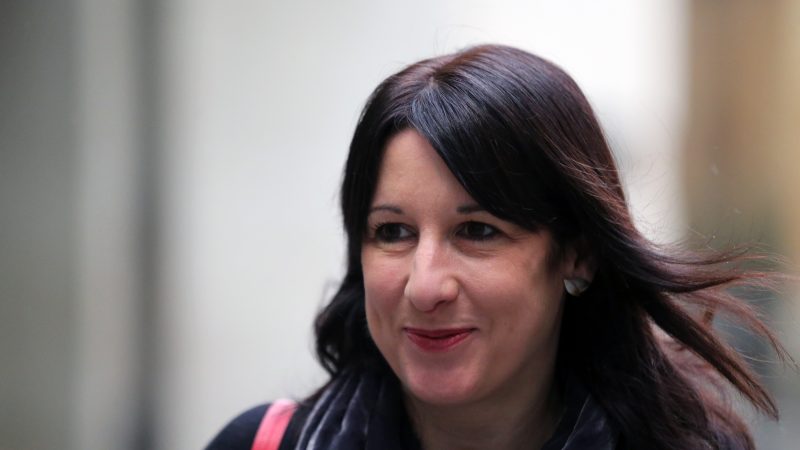
Rachel Reeves has declared that a “big swathe or nationalisation” would not be the priority of a future Labour government because she is not convinced that it would represent “good value for money” for either taxpayers or service users.
Taking part in an online Q&A session hosted by Labour in Communications today, the Shadow Chancellor told attendees that she would be “absolutely determined” that she is “spending on things that are people’s priorities” in government.
Labour called on the government to introduce a windfall tax on North Sea oil and gas companies in response to rising living costs earlier this month. Reeves cited the “record profits” made by the companies as utility bills have risen sharply.
She said this morning: “If I had gone out two weeks ago and said, you know, I’ve got some solutions to the cost of living crisis and that was nationalising a load of companies, I think people would think that that really missed the point and the challenges that people face right now.”
The Shadow Chancellor added: “I’m not particularly ideological about this. I want to get value for money for taxpayers and value for money for users of services. And I’m not convinced that spending taxpayers’ money on a big swathe of nationalisation is good value for money and would be the priority going into the next election.
“I always approach this on a case-by-case basis, I think that some industries are different from others – but when it involves a large use of taxpayers’ money without being clear about how it’s going to improve their services I’m not convinced that that would be a good use of taxpayers’ money when there are so many other priorities right now.”
Her comments followed those made by Labour leader Keir Starmer, who recently told LBC radio listeners that he is “not in favour of nationalisation” when rejecting the idea that energy companies should be taken into UK public ownership in a bid to keep profits in the country and lower energy bills.
One of Starmer’s ten pledges during his leadership campaign was that “public services should be in public hands, not making profits for shareholders”, and he promised to support the “common ownership of rail, mail, energy and water”.
He also raised his hand, along with rivals Rebecca Long-Bailey and Lisa Nandy, when asked on the BBC’s Newsnight hustings during the leadership contest whether he would renationalise water and electricity.
Asked today whether a Labour government would consider implementing a windfall tax on companies that have profited disproportionately because of the pandemic, Reeves highlighted the high tax burden and said: “I don’t have a big desire to increase that tax burden overall anymore than it is already.”
She added: “What I do want to see is a fairer system of taxation, whether that’s business taxation or personal taxation, or the taxation on different forms of income. And that’s where I think the problem is at the moment.
“Small businesses and high street businesses are paying much more in tax as a proportion of their profits than big businesses and multinational businesses who might not be registered here for tax purposes.”
Reeves announced at the Labour Party conference last September that the party would scrap business rates, telling delegates that Labour would “oversee the biggest overhaul of business taxation in a generation”.
The Shadow Chancellor argued at the time that it is “not fair” that “bricks-and-mortar high street businesses are taxed more heavily than online giants” and said the party would devise a new system for business taxation.
Reeves also reminded viewers this morning that the National Insurance contributions hike does not affect income gained through stocks, dividends, shares or buy-to-let properties and only impacts money earned through work.
“[It] is not about the overall burden of taxation so much at the moment but about whether those taxes are fair or not, and I would like to see a rebalancing to reduce the burden on small businesses and high street businesses, and also we wouldn’t be going ahead with this National Insurance contribution increase in April,” she said.
The discussion today formed part of a series of events Labour in Communications is holding with Labour frontbenchers. The organisation will be speaking to David Lammy later this month, and Ed Miliband and Anneliese Dodds in February.




More from LabourList
‘Factionalism at the top is weakening Labour – and handing a gift to Reform’
‘Europe must stand strong on its own as US security guarantees grow conditional’
‘Tackling poverty should be the legacy of Keir Starmer’s government’